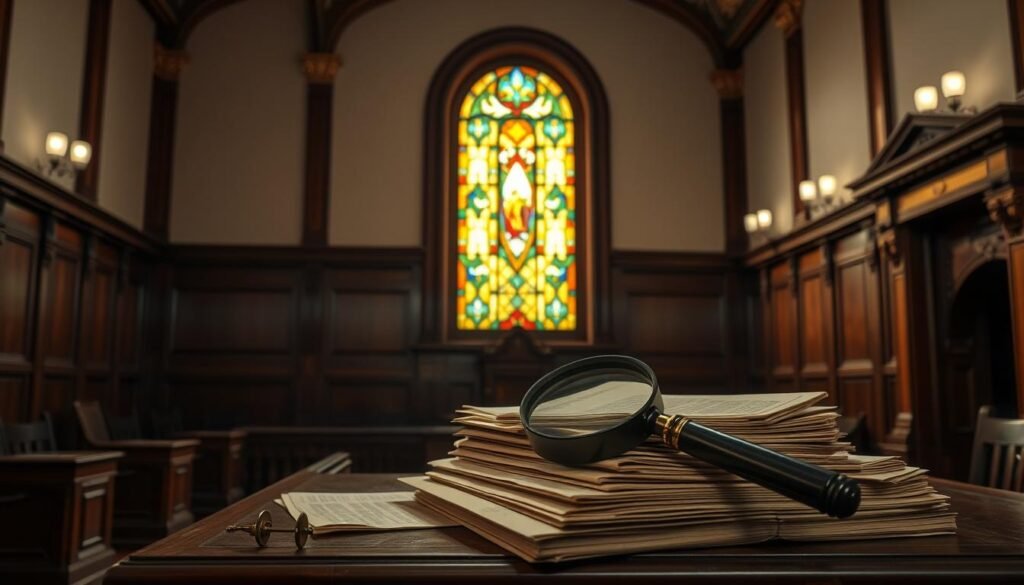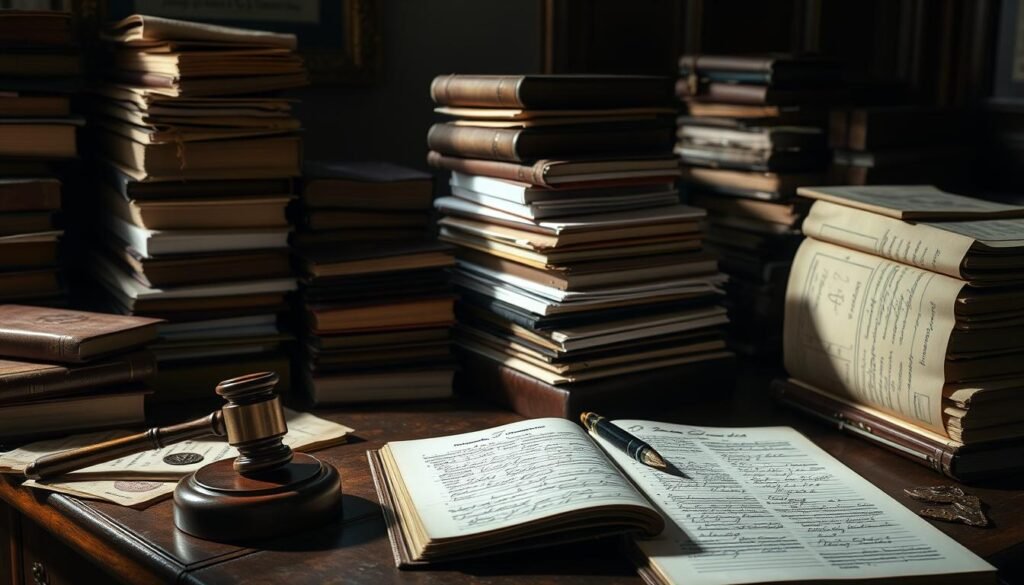When a loved one passes away, navigating the probate process to access their last will and testament can be a daunting task. However, understanding the intricacies of probate records can make this process much more straightforward. In this comprehensive guide, we’ll explore the ins and outs of looking up a will in probate, ensuring you have the knowledge and resources needed to handle this sensitive matter effectively.
Wills become public records after the probate proceedings conclude. When an individual passes away, the executor of their estate is responsible for filing the will with the local probate court. During the probate process, only the executor and named beneficiaries are typically granted access to the will. Once the probate is complete, the will and associated records become part of the public domain, allowing anyone to access them.
It’s important to note that probate laws vary across the United States. If someone leaves a valid will, they are considered to have died “testate,” whereas those who pass away without a will are considered to have died “intestate.” Regardless of the situation, the probate court keeps meticulous records on file, ensuring the legitimacy of the will and the entire probate process.
Key Takeaways
- Wills become public records after the probate process is complete.
- During probate, only the executor and named beneficiaries can access the will.
- Probate laws vary across the United States, with testate and intestate designations.
- The probate court maintains comprehensive records to validate the will and probate proceedings.
- Accessing a will often involves determining the correct jurisdiction and obtaining copies from the court.
Understanding the public nature of probate records and the procedures involved in accessing them is the first step in navigating this process. In the following sections, we’ll delve deeper into the legal intricacies and practical steps to successfully look up a will in probate.
Understanding Wills and Probate Records
Wills are legal documents that outline how an individual’s assets will be distributed after their death. The probate process involves the judicial review and validation of a will to confirm its legitimacy. In most cases, wills become public records once the probate process is complete.
What Qualifies as a Public Record
After the probate court concludes its proceedings, the will is generally considered a public record, allowing anyone to access and view it. This transparency ensures the proper administration of an individual’s estate and helps prevent any potential disputes or challenges to the will’s validity.
The Role of Probate Courts
Probate courts play a crucial role in the administration of estates. These specialized courts manage the validation of wills, oversee the distribution of assets, and maintain records of the entire probate process. The length of the probate process can vary, especially for large or complex estates, or in cases where there are will contests.
When Wills Become Accessible
Wills become accessible to the public once the probate process is complete. This ensures transparency and helps prevent any potential disputes or challenges to the will’s validity. Only the executor and beneficiaries are typically allowed to see the will during the probate proceedings.
Understanding the legal process of wills and probate can be valuable for those seeking to public records search, navigate the probate process, or manage an estate administration. By familiarizing oneself with these key concepts, individuals can better navigate the complexities of the probate system and ensure the proper distribution of an individual’s assets.

Who Has Legal Access to Probate Documents
When a person passes away, their estate undergoes the probate process to ensure proper distribution of assets and settlement of debts. During this critical stage, certain individuals have legal access to the deceased’s probate documents, including their last will and testament.
Executors and beneficiaries play a central role in the probate process. Executors are responsible for managing the deceased’s estate, paying off debts, and distributing assets to rightful heirs. Beneficiaries, on the other hand, are the individuals named in the will as inheritors of the deceased’s property and possessions.
- Executors have full access to the probate documents, as they oversee the entire probate proceedings.
- Beneficiaries named in the will also have the right to review the probate documents to ensure their inheritance rights are upheld.
Once the probate process is complete, the will and other related probate records typically become public documents. This means that legal professionals, family members, and other interested parties can access these records, subject to any privacy restrictions imposed by the jurisdiction.
Ensuring beneficiary rights, locating wills, and understanding inheritance laws are critical aspects of the probate process. By granting access to probate documents, the law protects the rights of heirs and creditors, facilitating the proper distribution of the deceased’s assets.

While the majority of probate records are publicly accessible, some jurisdictions may impose certain restrictions on who can access specific documents. It is essential to research the local laws and regulations to determine the extent of public access to probate records in your area.
How to Look up a Will in Probate
Navigating the process of searching for a will in probate can seem daunting, but with the right approach, you can successfully access this crucial public record. The key is to identify the correct jurisdiction, gather the necessary information, and leverage available court databases.
Identifying the Correct Jurisdiction
The first step is to determine the county where probate was filed, which is typically the county where the deceased individual resided or passed away. This information can be crucial in locating the relevant probate court records.
Gathering Required Information
Once you’ve identified the jurisdiction, gather as much information as possible about the deceased person, such as their full name, date of death, and any available case or file numbers. This data will help you navigate the court’s records and expedite your search.
Navigating Court Databases
Many probate courts now offer online access to their databases, allowing you to search for wills and other probate records. If the county’s website doesn’t provide this service, you may need to contact the court clerk directly for assistance. Some courts may require in-person visits to access their physical records.
Remember, the probate file number can be a crucial piece of information that can streamline your search, so be sure to obtain it if possible. With patience and persistence, you can successfully locate the will you’re searching for within the probate court records.
Online Resources and Digital Archives for Will Searches
When researching a will or accessing probate records, the internet offers a wealth of valuable resources. Government websites, commercial databases like Ancestry.com, and public records databases provide convenient online access to a wide range of wills and related documents. These digital archives and genealogy sites play a crucial role in preserving and facilitating searches for probate information.
Many state and county court systems now offer comprehensive online portals for accessing probate records. These user-friendly platforms allow individuals to search for wills by the deceased person’s name, filing date, or other relevant criteria. Some websites even provide the ability to view and download digital copies of the actual probate documents, streamlining the research process.
- Ancestry.com and FamilySearch.org host extensive digital archives of historical and recent probate records, making them invaluable resources for genealogy sites and will searches.
- Government websites, such as those operated by state courts, provide authoritative sources for accessing online probate records through intuitive search tools and databases.
- Third-party services like Ancestry.com and FamilySearch.org offer comprehensive probate record databases, but may require a subscription for full access.
When utilizing these online resources, it’s important to remember that search accuracy can be improved by using the deceased individual’s complete legal name, correct spelling, and specific date of death. Some platforms may also charge fees for accessing certain records, so budgeting accordingly is recommended.
Overall, the digital era has revolutionized the way we access and preserve probate records. These online resources and digital archives have made it easier than ever to uncover valuable information about wills and the probate process, empowering individuals to conduct thorough research from the comfort of their own homes.
Common Challenges When Accessing Probate Records
Navigating the probate process can present various challenges when it comes to accessing records. Privacy laws may limit our access to sensitive information contained within wills, as certain details are meant to be protected. Additionally, some records may be sealed by court order, restricting the public’s ability to view them.
Privacy Restrictions and Legal Limitations
Probate records often contain personal and financial information that is subject to privacy laws. We must be mindful of these legal limitations and respect the confidentiality of the deceased and their beneficiaries. Accessing certain documents may require specialized permissions or court approval, especially if the records contain sensitive data.
Dealing with Sealed Records
In some cases, probate records may be sealed by the court, making them inaccessible to the general public. This is often done to protect the privacy of the individuals involved or to prevent potential conflicts and disputes. Navigating the process of gaining access to sealed records can be complex and may require the assistance of legal professionals.
Historical Document Access
Older probate records, particularly those from decades or even centuries ago, may be stored in physical archives or on microfilm. Accessing these historical documents can present unique challenges, as we may need to follow specific procedures and potentially visit specialized repositories to view the records. Interpreting the content of these older documents may also require expertise, as the language and formatting may differ from modern standards.

